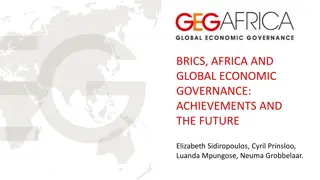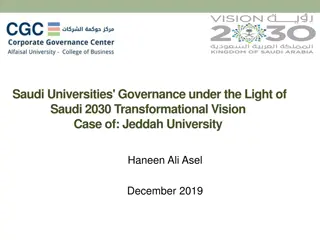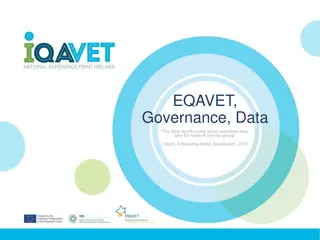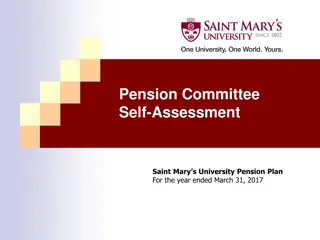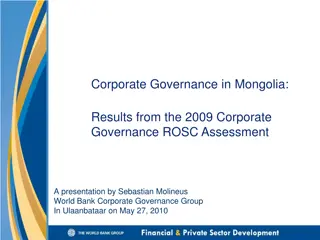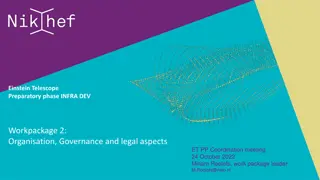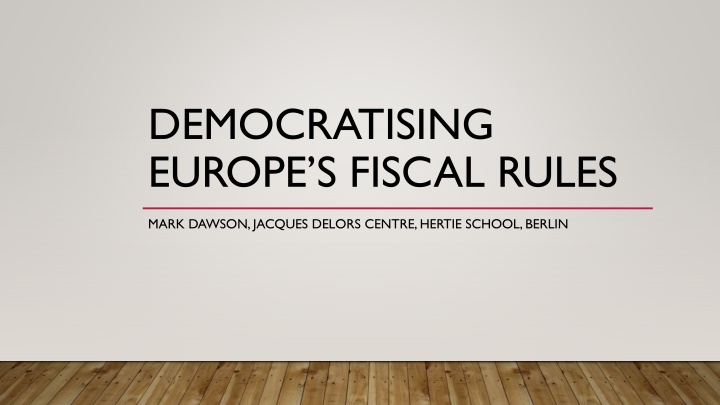
Democratising Europe's Fiscal Rules and Reform Proposals
Explore the democratic implications and challenges of the proposed reforms to EU economic governance, focusing on issues of national ownership, fiscal rules, and the balance between debt and social sustainability. Learn how reforms could impact national democracy and the importance of expanding national ownership through consultation and involvement of national parliaments and civil society.
Download Presentation

Please find below an Image/Link to download the presentation.
The content on the website is provided AS IS for your information and personal use only. It may not be sold, licensed, or shared on other websites without obtaining consent from the author. If you encounter any issues during the download, it is possible that the publisher has removed the file from their server.
You are allowed to download the files provided on this website for personal or commercial use, subject to the condition that they are used lawfully. All files are the property of their respective owners.
The content on the website is provided AS IS for your information and personal use only. It may not be sold, licensed, or shared on other websites without obtaining consent from the author.
E N D
Presentation Transcript
DEMOCRATISING EUROPE S FISCAL RULES MARK DAWSON, JACQUES DELORS CENTRE, HERTIE SCHOOL, BERLIN
THE REFORM PACKAGE On 26 April, COM proposed 3 new measures for reforming EU economic governance 1) A proposal for replacing Regulation (EC) No 1466/97 (the preventive arm of the Stability and Growth Pact) 2) A proposal for amending Council Regulation (EC) No 1467/97 (the corrective arm of the Excessive Deficit Procedure) 3) A proposal for amending Council Directive 2011/85/EU (on budgetary frameworks of the Members States; part of 2011 six-pack reforms) Goal: to examine the democratic implications of these proposals and to think about reform
3 PROBLEMS WITH THE REFORM PACKAGE The democratic deficits of this package linked to important tensions in these proposals 1) Repeated link drawn between national ownership and effectiveness. But ownership national government only. Need to build societal support for national structural plans. 2) Are fiscal rules national or common? Shift to bi-literalism creates two risks: i) blindness to horizontal effects of national policies; ii) inequality of treatment 3) Proposals present a virtuous circle between debt sustainability and social sustainability. But they equate former with latter. How do we ensure the right balance? => Democratisation of these rules not just needed for its own sake but to allow this package to achieve its (purported) objectives
HOW COULD THE REFORMS ALTER NATIONAL DEMOCRACY? The past a good guide to today. Six-pack reforms helped NPs in addressing information asymmetries (e.g. regularized budgetary process) But their scrutiny of national budgetary plans varies widely. Strong correlation between formal powers of NPs and their involvement in the European Semester But what formal powers do NPs now have? Extended time frame of national plans (4-7 years) and binding debt trajectory risks emptying out role of NPs in national budgetary process -> COM Proposals only ask MSs to report on whether NPs have debated national plans. How do we ensure national buy-in when only governments have meaningful voice?
EXPANDING NATIONAL OWNERSHIP Reforms should consider how to consolidate national ownership through: i) making consultation of NPs and civil society (inc. social partners) a mandatory requirement in national structural planning. COM should assess such involvement when determining adequacy of national plans under Art. 15, Preventive Arm Regulation ii) Amending the Directive on national budgetary frameworks (Art. 9) requiring MSs to consult NPs when adopting medium-term budgetary frameworks, in accordance with national constitutional requirements => EU fiscal policy should not just talk about ownership but create mechanisms to achieve it
EU-LEVEL DEMOCRACY WHERE IS IT? Proposals see the EP as a scrutiny Parliament. See Art. 26 of Preventive Arm Regulation EP should be duly involved , where appropriate . Job of EP is to ask questions. But see evidence of limited effectiveness of economic dialogues (Akbik 2022): rarely produce policy change and severe practical hurdles What EP is not i) an agenda setter; ii) a political body that considers trade-offs between policy goals; iii) a voice for European/horizontal interests Part of a long tradition EU fiscal policy is hardening and supra-nationalizating but still carries inter-gov decision-making structure
FROM A SCRUTINY TO A POLITICAL EP EP must be involved not just in overseeing implementation but in setting policy priorities. Different routes possible: i) expanded use of delegated acts (controlling COM prior guidance , technical trajectory and decision to extend adjustment period under Art. 7, 13 & 14 Preventive Arm Reg); ii) co-decision of key elements of the preventive arm (after plenary debate) such as endorsement of national structural plans (Art. 16), adjustment of expenditure path (Art. 18/19) or triggering of escape clauses (Art. 24/25) => EP has co-decision powers; it should use them where legally feasible to address problems of bi-lateralism/inequality only EP involvement can solve
BALANCING FISCAL, SOCIAL & ECOLOGICAL GOALS The Regulation frequently mentions social and environmental objectives and the need to place them on an equal footing. But see history of policy coordination taking social rights seriously requires institutions who care about them (see experience of European Semester (Vanhercke & Zeitlin 2020) No balance between different types of risks i.e. unsustainable debt v fiscal contraction, ecological under-investment, inequality. Consequences attach to former but not latter. We have a danger of bias i.e. IFIs provide significant input into fiscal risks but decision- makers may have lack information on other types of risk
RE-BALANCING EUROPES FISCAL FRAMEWORK How can we re-balance risks? Directive 2011/85 seeks to strengthen IFIs (underlying idea = IFIs will feed into national policy-making making plans more reliable). i) Amendments to Budgetary Frameworks Directive could mandate forecasts from national equality & environment bodies on social/ecological impact of nat. fiscal planning ii) Amendments to Preventive Arm Reg (Art. 9) could ask COM when preparing prior guidance - to measure impact of technical trajectory on ability of MSs to meet climate goals and/or the European Pillar of Social Rights (also important for EP scrutiny). => EU fiscal rules will not achieve a sustainable balance between economic and other goals without institutions and measures of assessment that balance overall fiscal risks
CONCLUSION Return to the economic debate should EU economic governance be driven by strict rules or governed by discretion/negotiation? Neither is sustainable: strict rules are too rigid; a negotiated approach gives COM and MSs (particularly the powerful states!) too much power/discretion Democracy offers a way-out: we need fiscal rules that allow COM and Member States to do their job but also allow Parliaments to do theirs ie. sensitise EU economic governance to the needs of citizens across the EU and scrutinize what officials do Thanks for your attention! (dawson@hertie-school.org)





